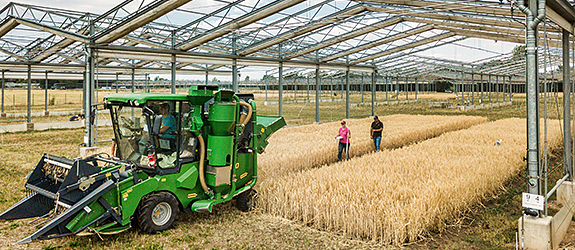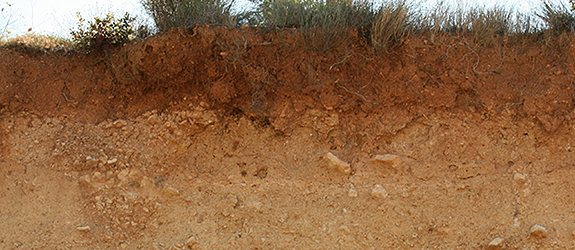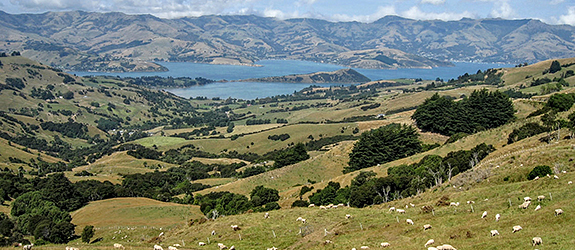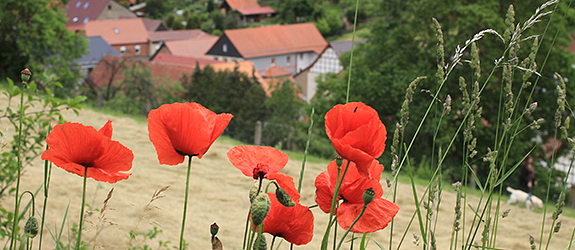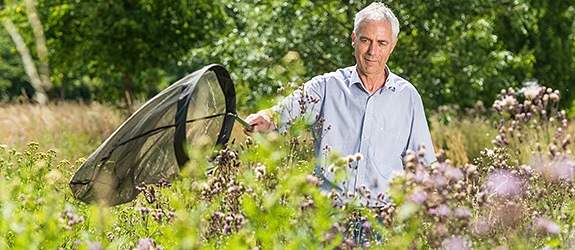Sustainable future land use
Provisioning natural resources, biodiversity and ecosystem services
Ecosystems provide the foundation of life and support our human wellbeing. Humanity depends on functioning ecosystems while human activities also form the biggest threat to ecosystems, manifested in the loss of biodiversity, decreased food supply and soil degradation. The mission of our Integration Platform "Sustainable Future Land Use" is to provide the solutions urgently needed to make ecosystems of the future stable and resilient to Global Change.
Intact functioning ecosystems provide us with an array of free services, such as high and stable yields, healthy and nutritious food, medicinal products, building materials, clean air and water, flood defence, recreational and aesthetic values. The value of these services is estimated to cover billions of Euros and costs rise with decreasing functions that we get for free, so far. All these services rely on stable and resilient ecosystem function providing fertile soils, carbon sequestration, pollination and natural pest control and many more which is provided by various aspects of biodiversity. Halting the decline in biodiversity is of utmost importance if we are to benefit from the provision of these services.
Additionally, land is a limited resource on our planet which can basically only be assigned to one specific use. Whether this is for urban development and infrastructure, agriculture and forestry, mining and industry or nature conservation, every decision made in favour or against land-use change can result in unforeseeable changes, conflicts, opportunities or new development potential.
Our research aims to understand how processes in ecosystems work and how they are connected. Strategies and instruments that ensure the resilience of ecosystems in times of global change and the services they deliver. Measures mitigating increasing pressure will be developed. Preserving and restoring biodiversity and the essential above and belowground functions of ecosystems is the key for sustainable land use.
The Integration Platform "Sustainable Future Land Use" aim to comprehensively provide the answers to the problems of ecosystems. To this end, the scientists at this Integration Platform work together in interdisciplinary Dynamic Platform Projects.:
- Mapping soil profiles and measuring horizon properties of the Static Fertilization Experiment Bad Lauchstädt to improve agroecosystem modelling (PI: Julius Diel, BoSys)
- Digitalizing root growth data from the archives of the Static Fertilization Experiment Bad Lauchstädt (PI: Julius Diel, BoSys)
- Soil structure and biochemical properties as function of management in a long-term fallow trial (PI: Steffen Schlüter, BoSys)
- Towards in-depth characterization of soil micro-environments: eco-indicators and mechanisms driving soil C sequestration (PI: Evgenia Blagodatskaya, BOOEK)
- Root-associated microbial communities at MyDiv (PIs: Kezia Goldmann, BOOEK & Stephanie Jurburg, AME)
- Bioaccumulation of pesticides and selected legacy and emerging pollutants in amphibians in relation to agricultural and dump sites (PI: Annegret Grimm-Seyfarth, NSF)
- The role of hybridisation and genetic variation in the conservation of the rare and endangered plant species Lupinus tidestroemii (PI: Walter Durka, BZF)
- Historic composition of bee communities in Leipzig and Halle (PIs: Hanna Honchar, BZF & Tiffany Knight, SIE)
- In which cases does surrounding landscape structure affect agricultural yields? (PI: Elina Takola, CLE)
- Which agricultural management practices lead to win-win outcomes for biodiversity and yield? (PI: Elina Takola, CLE)
- DeepTrees -- Deep-Learning based spatiotemporal tree inventorying and monitoring from public orthoimages (PI: Taimur Khan, BZF)

